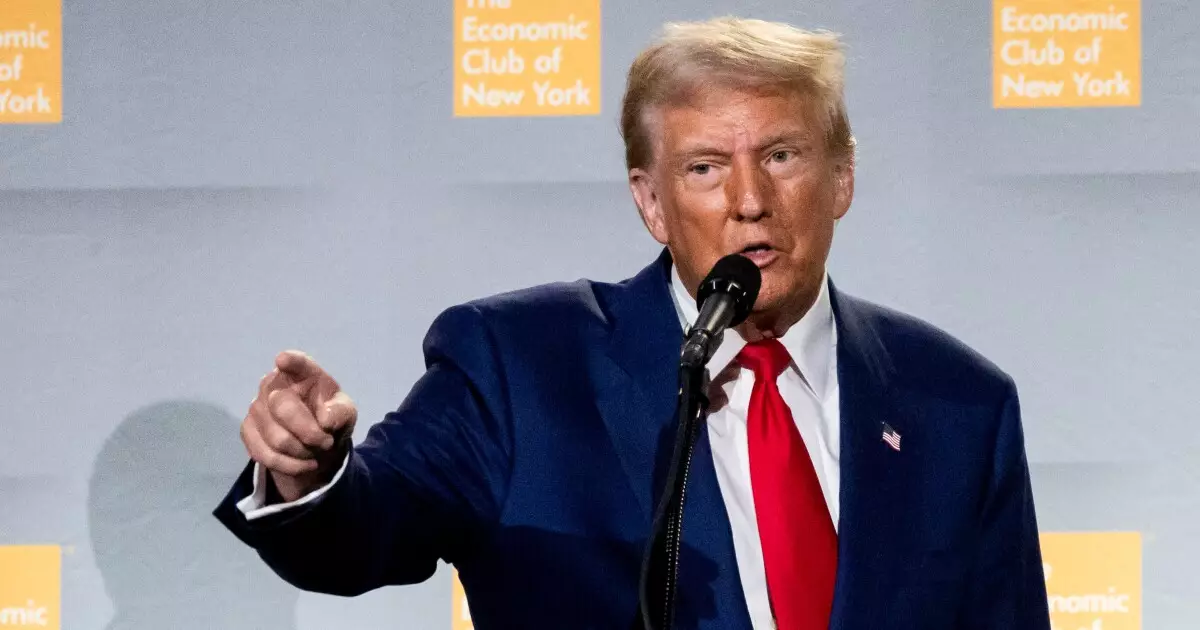Former President Donald Trump recently suggested the creation of a U.S. sovereign wealth fund to finance infrastructure projects during a speech to the Economic Club of New York. While the idea of a wealth fund for national development projects may sound appealing on the surface, there are several critical issues with Trump’s proposal that need to be addressed.
One of the major shortcomings of Trump’s proposal is the lack of specific details provided. During his speech, Trump did not offer concrete plans for how the sovereign wealth fund would be structured or funded. He mentioned tariffs on certain goods and other revenues as potential sources of funding, but this vague explanation raises more questions than answers.
This is not the first time that a national fund or bank has been proposed to finance U.S. infrastructure projects. Supporters of a national infrastructure bank have previously lobbied Democrats for a $5 trillion bank, but these proposals have failed to gain traction. Trump’s sovereign wealth fund proposal appears to follow a similar pattern of lofty ideas without a clear path to implementation.
According to experts in infrastructure investment, the main obstacle to large-scale projects in the U.S. is not lack of funding, but rather political fragmentation and jurisdictional issues. Trump’s emphasis on creating a wealth fund fails to address the fundamental challenges of coordinating across multiple levels of government and securing buy-in from stakeholders.
While sovereign wealth funds are a common investment tool for many countries, their primary focus is on existing, cash-generating assets rather than new infrastructure projects. The evolving landscape of infrastructure investment points towards a different approach, with direct investments in infrastructure assets increasing significantly in recent years.
Instead of creating a new national fund, experts suggest that leveraging existing mechanisms such as the taxable and direct-pay municipal bond market may be a more efficient way to finance infrastructure projects. The muni market has a proven track record of overcoming local and regional obstacles, making it a practical choice for funding large-scale initiatives.
While the idea of a U.S. sovereign wealth fund may be well-intentioned, the lack of specifics, alignment with industry trends, and failure to address political hurdles make Trump’s proposal a questionable solution for financing infrastructure projects. As the country grapples with the need for critical infrastructure investments, it is essential to explore alternative funding mechanisms that prioritize efficiency and effectiveness.

